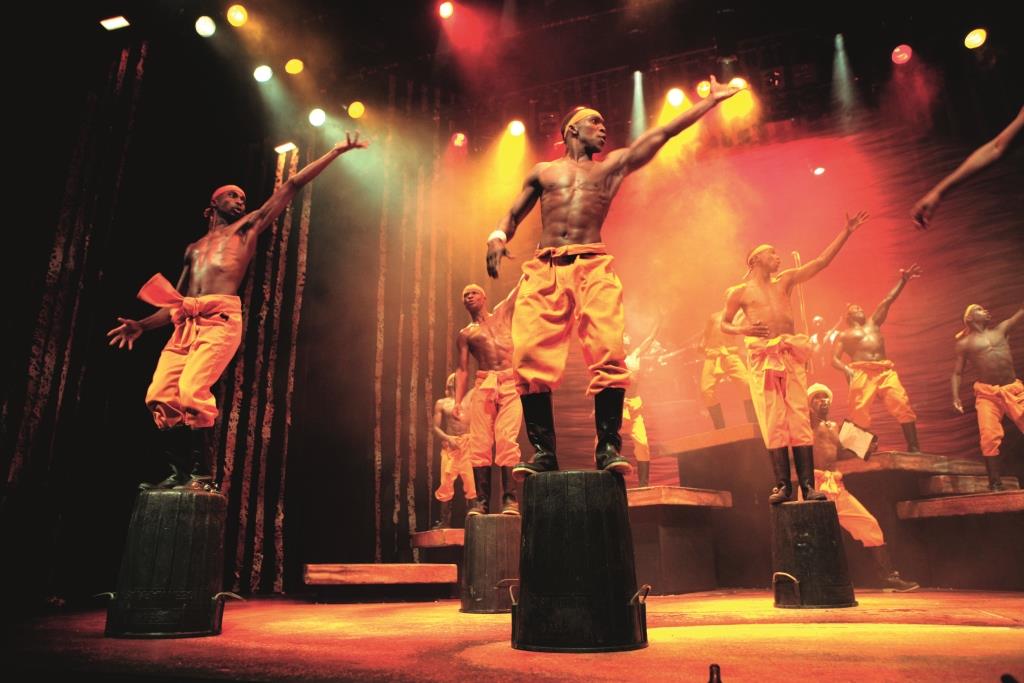After 12 years on stage, fans worldwide still marvel at the performances of Africa Umoja, a colorful musical that took two old pals, Thembi Nyandeni and Todd Twala, 10 years to craft. These two performers came from the dusty streets of Soweto. Together, they created a world-class theater piece that showcases the African cultural renaissance through rhythm and dance and has visited more than 30 countries.
Young people idling in the streets motivated Nyandeni and her friend to create this production.
“Showbiz helped me to find myself. Now I want to protect others who are vulnerable,” says Nyandeni. Her father supported her throughout her dancing career by taking her to discos and parties. “My father would drop me and wait for me outside and I would dance through the night. At four in the morning, he would take me home with all my friends.”
Past members of the troupe have performed in big shows on Broadway in New York, like The Lion King. On average, dancers spend about five years with the troupe. Collen Mavundhla, aka “Mosquito”, is one of the oldest cast members. She’s been there since the group’s inception. “I’ve seen a lot of cast members being developed into professionals,” says Mavundhla.

Loading...
Umoja’s recent performance in Lagos attracted captains of industry, senior public sector officials and members of the diplomatic community. First Bank, Nigeria’s oldest bank and the show’s sponsor, was so impressed by the performance that it proposed to partner with the dance troupe. According to Folake Ani-Mumuney, head of marketing at First Bank: “The choice of Umoja is really based on the theme behind Umoja, which is the spirit of togetherness. This is something that transcends South Africa. It is something that finds a place across the globe and Nigeria.” Ani-Mumuney believes the proposed partnership will go a long way to bridging the gap between Nigerian and South African businesses and correct some of the negative perceptions that exist about the countries.
Relations between South Africa and Nigeria are strained after South Africa deported 125 Nigerians from O.R. Tambo airport. “When the political relationship hits a bad patch, South African companies bear the brunt of it as they are the face of the bilateral relationship in Nigeria. Business people suffered most from Nigeria’s retaliation on the visa issue and they formed the bulk of those turned back at the airport recently. The foreign minister had already threatened to ‘clamp down’ on SA’s companies if SA did not apologize for its immigration officials’ actions,” wrote Dianna Games of the South Africa Nigeria Chamber of Commerce.
For Africa Umoja, partnership with a Nigerian bank is an opportunity for them to be part of the solution. “Umoja is not just a South African story, it is for everybody African. So I would like to put together 12 South African and Nigerian singers and dancers to create a show that will be a symbol of unity between us. My vision is to bridge the divisions between Nigeria and South Africa,” says Nyandeni. She concedes that the road ahead is not going to be easy. In addressing tensions, cultural diplomacy will be an invaluable tool. There are prevailing negative stereotypes, she says, that need to be dispelled. Yet there are few neutral channels to nurture understanding.
Of course, to discourage stereotyping will require more than one show. But, says Ani-Mumuney,
“I always say one thing about the creative industry; it is only limited by the limits of our imagination, which
is limitless.”
Loading...
